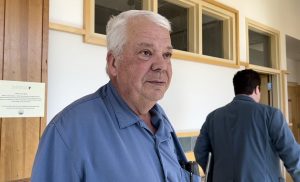Canadian environmental professor Gordon Wilkie faces severe allegations and charges following a horrifying event in the Bahamas. Wilkie, known for his academic contributions in the field of renewable energy at Nova Scotia Community College, is accused of abducting and raping an 80-year-old grandmother who suffers from Alzheimer’s disease. This appalling act has not only brought the academic under intense scrutiny but has also ignited a conversation about safety and vulnerability in seemingly secure environments.
Who is Gordon Wilkie?
Gordon Wilkie, until recently, was primarily recognized for his expertise and dedication to the advancement of renewable energy technologies. As a professor at Nova Scotia Community College, Wilkie played a significant role in educating the next generation of environmental scientists and engineers, with a focus on sustainable and eco-friendly energy sources. His academic and professional pursuits painted the picture of an individual committed to addressing some of the most pressing environmental challenges facing the globe.
However, the allegations against Wilkie have drastically altered the narrative of his life and career. According to reports, the incident unfolded when the victim, an elderly woman with Alzheimer’s, was separated from her family during a hotel stay in the Bahamas. The family was enjoying a social gathering when Wilkie, a stranger to them, joined their company. Later in the evening, a seemingly innocuous elevator ride turned into a nightmare when the victim and Wilkie were left alone after a swift closure of the elevator doors.
The victim was missing for approximately 40 minutes, during which her family and Homeland Security Investigations Special Agent Tom Justice, who coincidentally was also present at the hotel, launched a frantic search. The search came to a chilling conclusion when Agent Justice encountered Wilkie and the distressed victim in the elevator, leading to Wilkie’s immediate apprehension.
The subsequent investigation and medical evaluation confirmed the heinous nature of the crime, leading to Wilkie’s arrest and charges being filed by the Bahamian authorities. This incident has not only cast a shadow over Wilkie’s professional achievements and standing in the academic community but has also raised critical questions about the mechanisms in place to protect the most vulnerable members of society, especially in settings that are assumed to be safe.







